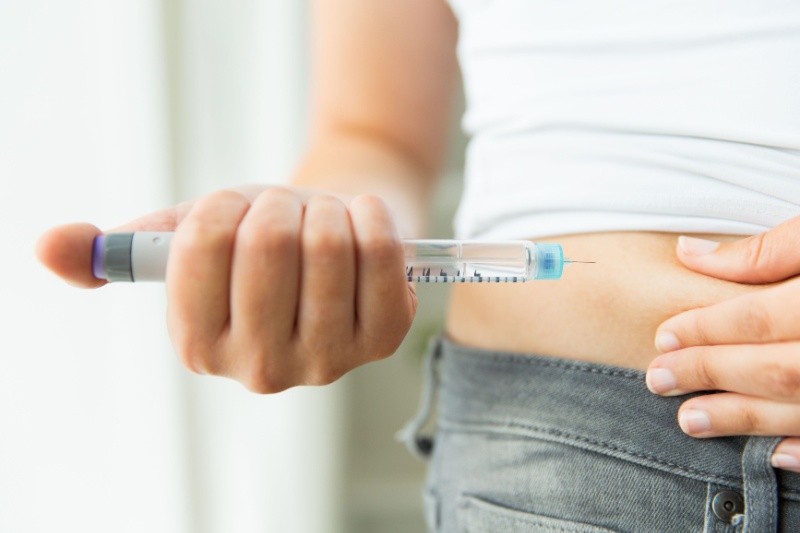Insulin may not be a necessary component for treating type-2 diabetes, but if it is required, you should include it as a part of your treatment. Unless you have a phobia of needles, insulin shots should not scare you because ‘someone once told you something.’ It’s time to debunk these myths.
What you need to know:
- Understanding Insulin
- What is insulin?
- How does insulin work in the body?
- Common myths about insulin
Understanding Insulin

Your doctor will prescribe insulin if you need it, and that is just part of the treatment, not a reflection of your diabetes management. If your body can sustain insulin levels independently, insulin-free medication will be the treatment plan. There is no way a healthcare professional will overdose you by prescribing insulin shots when you don’t need them. So, relax!
What is insulin?
Insulin is a hormone secreted by pancreatic beta cells. Insulin maintains normal blood glucose levels and regulates protein metabolism, carbohydrates, and lipids. It carries glucose to the cells to be broken down for energy.
How does insulin work in the body?
When glucose is released into the bloodstream, say after a meal, insulin stimulates the absorption of glucose to lower the glucose levels. It triggers the cells to increase absorption to restore blood sugar levels. When the body cannot undergo this process and fails to utilize insulin properly, it is said to be insulin resistant.
Common myths about insulin
When a doctor prescribes insulin to a person with diabetes, they may assume their condition is worsening because of poor management. This is simply due to the myths and misconceptions surrounding insulin treatment plans. Naturally, a person with diabetes may end up shocked or worried when it is just a method to compensate for the body’s inability to maintain its insulin levels. In no way does it mean that your condition is critical. Let’s look at some of these myths about insulin and get them out of the way:
- Insulin use directly leads to weight gain.
It may be true for some people, but it’s logical. When your body receives adequate insulin, it processes food better and helps absorb nutrients. You have to be responsible about watching what you eat and lead an active lifestyle, which you should be doing even if you are not on insulin.
- Using insulin means you failed to manage diabetes properly.
Introducing insulin into your treatment plan is just a method of treatment that your doctor will prescribe if necessary. Diabetes is a chronic disease that constantly changes and progresses, so you will have to modify and adapt your therapies and approach to management continually.
- Insulin does not work.
This is a prevalent myth since people don’t see diabetes as the body’s inability to produce or utilize insulin. People still believe it’s about how much sugar you eat. If you follow your routine with discipline and never miss a dose, insulin is your best bet to reduce blood sugar levels.
- Insulin can cause kidney failure, blindness, or death.

Unchecked diabetes can lead to kidney failure, blindness or even death. Detecting and starting insulin treatment early can delay or prevent them.
- Insulin causes hypoglycemia.
This may not be entirely incorrect, but it’s not so simple. Hypoglycemic reactions may occur but are less likely to occur in type-2 diabetics. Long-acting insulin is less likely to cause hypoglycemia as newer drugs have dealt with the problem. You can always consult your doctor to recognize and eliminate adverse insulin reactions.
- Insulin is addictive.
You can put this one in the myth cabinet. Your body has been producing insulin since birth, and insulin shots are a treatment that compensates for what the body cannot make anymore. Insulin is not a drug that can become addictive.
- Insulin injections are painful.
It might have been true initially, but modern-day insulin injections use fine, tiny needles designed to make the process comfortable for the patient. Yes, the thought of multiple injections a day can be unpleasant, but you can get these shots painlessly.
Insulin treatment has progressed to a level where it’s safe for even pregnant people with diabetes. Your doctor may start you on insulin sooner, but that can mean you will be successful in managing your diabetes better in the long run and avoid severe complications.
Stay tuned to the Activ Living Community. Keep updated with the latest health tips and trends through expert videos, podcasts, articles, and much more in nutrition, fitness, mindfulness, and lifestyle conditions like Asthma, Blood Pressure, Cholesterol, and Diabetes. Activ Living ke saath sahi sehat ki shuruaat ABHIkaro.
You may also be interested in the following blogs:
- How Does Insulin Therapy Make Life Easier For People With Diabetes?
- Discovering The Weight Loss And Cardiovascular Advantages Of Ozempic
Popular Searches
How to lower blood pressure | Fruits good for liver | Unhealthy foods | Ragi Benefits | Basal Metabolic Rate | Acupressure points for High Blood Pressure | Ayurvedic medicine for blood pressure | How to control cholesterol at home | Homeopathy for Asthma | Biological Age | Home remedies for TB | Natural beta blockers | Negative effects of internet | Types of walking | Blood pressure calculator | Blood sugar calculator | BMI Calculator





 1800-270-7000
1800-270-7000







